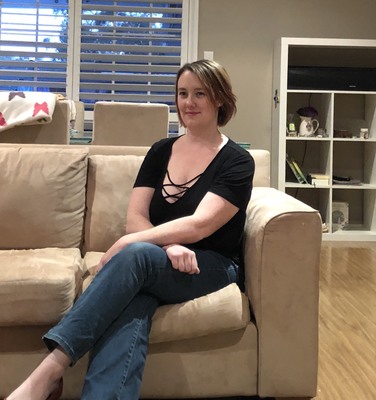By Melissa Grant
As a mum, it’s often difficult not to feel frustrated or stressed out.
Busy schedules and a child’s testing behaviour can make you feel like you’re in a survival mode of sorts.
When the frustration and stress leads to yelling at your child, you’re likely to feel even worse than you did to begin with.
It’s a situation Heather Lindsay knows well.
As the founder of Blissed Out Mums, Heather has helped more than 2500 mums overcome the guilt to become calmer and more patient parents.
The registered nurse became a motherhood coach after battling postnatal depression in the weeks after the birth of her second child.
“I became a single mum when I was 28 weeks pregnant. It was a traumatic experience,” she explained.
“When my daughter was born, I ended up seeing a GP, went on antidepressants and saw a psychologist.
“After six weeks it wasn’t working anymore. As a single mum with two kids I was like ‘I don’t have time for this. I don’t have time to go over the past’.”
So Heather turned to life coaching.
“My life did a complete 180. I was happy again. My kids were thriving. Life was the way I wanted it to be.”
However, Heather had noticed there were many other women who weren’t happy with the mums they had become.
Feeling inspired to bring life coaching to other mums, Heather undertook training in life coaching and mental health.
She started Blissed Out Mums, a parenting service that helps mothers via online programs and workshops. Women can also get one-on-one help.
“I’ve found the biggest things mums don’t like is that they are always feeling frustrated, they’re stressed out, yelling and taking it out on their children,” Heather explained.
“They end up feeling so guilty they don’t enjoy the time with their children, or going to work.”
So how do you stop yelling at the kids?
These are Heather’s top tips for being a calmer mum:
Breathe: When a child is yelling or screaming our body enters a stress response and we don’t think clearly. If we do some deep breathing it helps push the stress response into a relaxation response. If you take 18 seconds to do that before you respond to your child, chances are you won’t yell.
Expectations: It’s important to take a step back and look objectively at our kids’ behaviour. All behaviour is communication – they’re trying to tell us something, they just don’t know how to. You need to support them emotionally and fix the cause of the problem.
Self-care: A lot of the time if we’re stressed about our laundry and relationships, we don’t have patience for our children. Self-care is important – we can’t parent from an empty cup. Sitting down even for a few minutes a day and doing something for yourself is important
Be open: I’m a big advocate for open communication with children. It helps if you say ‘Mum is really sorry but she is really cranky today, I didn’t need to yell at you’. It helps build that secure attachment.
Look at the big picture: When your children move out or when they are reading your eulogy at your funeral, how do you want them to remember you? You don’t want them to remember being taken places or being given toys – you want them to remember the connection they had with their mum. If you can look at the big parenting picture and beyond the day to day struggles it helps guide your own behaviour and be the mum you want to be.
Heather says it’s also important to remember that nobody is a perfect parent.
As a single mum to three kids, aged 7, 4 and 22 months, she admits there’s even times when she gets irritated.
“There are still some days I get frustrated and cranky, but it’s about knowing what different things to turn to,” she said.
“One of the biggest lessons I learnt when I became a single mum was that if I didn’t look after myself my children suffered and there was nobody else to pick up the pieces.”








